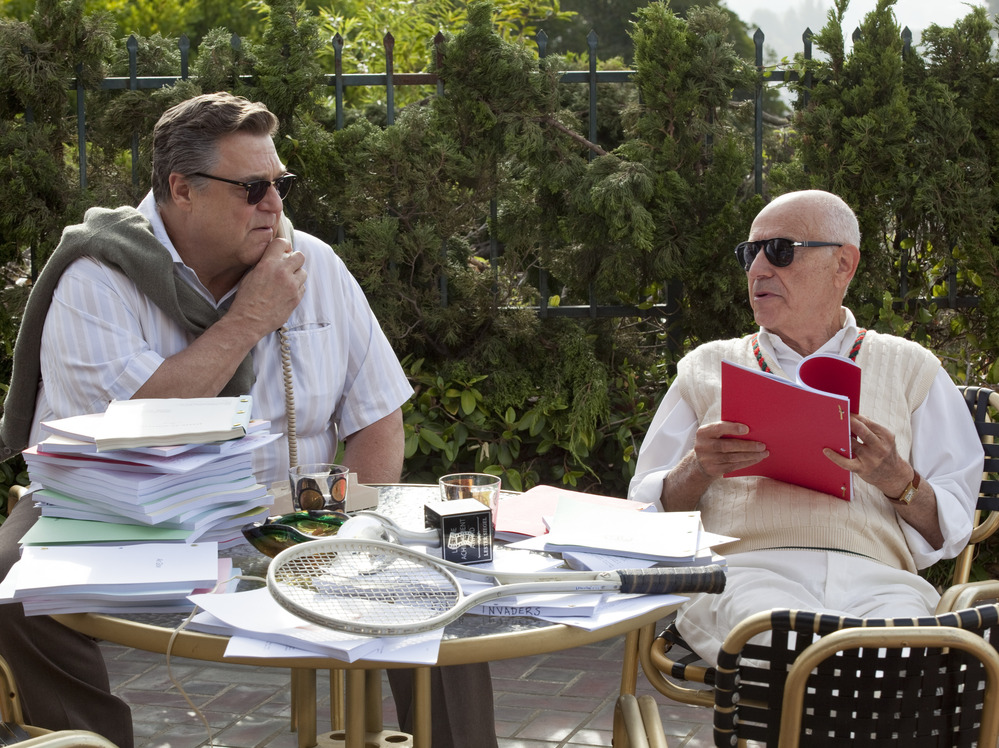
Southword is a collaborative series between NPR and Oxford American magazine, spotlighting the people, places and trends that shape the modern American South. Dave Anderson, filmmaker for Oxford American, teams up with NPR journalists to produce stories about a region that continues to evolve in unexpected ways.
Many years ago, a young Chad Griffin left his hometown of Arkadelphia, Ark., to pursue a career in politics. Today, he's the newest head of the Human Rights Campaign (HRC) — a powerful gay rights group based in Washington, D.C.
Together with Oxford American magazine, NPR brings this latest installment of Southword, a series about life in the South. To learn a little bit more about what it's like to be gay below the Mason-Dixon line, we caught up with Griffin — both at his office in Washington and in his hometown of Arkadelphia, Ark., where he spent his first day on the job.
"I never knew that I knew another gay person when I was growing up," Griffin recalls, describing life in Arkadelphia. "I frequently heard things like 'faggot' and 'queer bait.' "
It wasn't until many years later that Griffin would realize he was gay, let alone come out to his mother, which he did in his 20s. By that time, he had already volunteered for Bill Clinton's presidential campaign, and joined that administration in the White House as one of the youngest-ever staffers, at age 19.
Upholding Tradition
"I was raised missionary Baptist. Very conservative," says Griffin's mother, Betty Hightower. "And at first it really was hard for me to say my son was gay." Still, Griffin emphasizes repeatedly, he has always had his mother's support.
Even Jerry Cox, head of the conservative Arkansas Family Council, says homosexuality, per se, is not the issue:
"Most people in Arkansas have a very live-and-let-live attitude," he says. "So if you said, 'What do people say about gays in Arkansas?' They'd be like, 'Eh, whatever.' "
Yet Cox takes issue when certain folks try to change the rules. In 2008, he led an Arkansas ballot initiative banning gay couples from adopting (which was later struck down by the state Supreme Court). And he represents long-standing beliefs about upholding the traditional family unit.
"Where the issue comes in," he says, "is when people come in and say 'I'm gay and I want to redefine what marriage is.' And people say 'Woah, wait a minute, marriage has been this way for thousands of years. We like it the way it is and don't want it to be redefined.' "
The HRC provides support to those opposing positions espoused by Cox. Griffin and his sympathizers might not win all battles, but they have won some: Arkansas is actually one of a few states that has an anti-bullying law with specific protections for sexual orientation.
Life At Home
Of course, what goes on in the legislature doesn't always reflect attitudes at home, which can prove formidable.
Take 19-year-old Alyss Parrish (that's not her real name; it's what she goes by in college in Little Rock). When she's home with her parents, she goes by her birth name. Because when she was 15, her parents found her MySpace page — and saw that she was questioning her sexuality.
"Mom started crying," Alyss recalls at a function for Griffin in Little Rock. "Dad pulled out a bible. Chanting verses, angry, extremely red-faced. I don't think I've ever seen my parents that upset before."
Her dad is a Pentecostal preacher. He said she could continue to live with them under one condition: That she say she's straight. And so she did. If she told them she was actually gay, she fears they would disown her.
Griffin says he goes home so he can hear stories like hers.
"Someone who is that young," he says, "Having to go in and out of the closet so she can hide her identity from her own parents — that's the young person that motivates me day in and day out."
Maybe this is where Griffin's southern roots come in. If he can pivot from pressuring the president one day, and the next, to handing a microphone to closeted kids like Alyss in Arkadelphia — well, she can tell you what that means:
"Having someone from this state president of the HRC? That's big! That's big for Arkansas," she says.
Griffin left the south to pursue big dreams. Alyss, on the other hand, doesn't think she has to leave home to change the world. She wants to be a Supreme Court justice. And change, she says, is already afoot in Arkansas.

 John Chambers (John Goodman) and Lester Siegel (Alan Arkin) help craft a fake movie production in Argo.Claire Folger/Warner Bros.
John Chambers (John Goodman) and Lester Siegel (Alan Arkin) help craft a fake movie production in Argo.Claire Folger/Warner Bros.